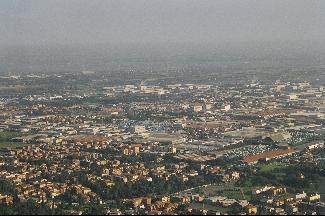
Highly amongst Italian eco-clusters
In 2012 the Sassuolo Ceramic Cluster ranked fourth behind the Tuscan clusters with a score of 79.4
The Cartesio Network, promoted by the regional authorities of Emilia Romagna, Lazio, Liguria, Lombardy, Tuscany and Sardinia for the purpose of fostering the environmental sustainability of national manufacturing clusters, updated its Eco-cluster Report in 2012. This report classifies Italian clusters on the basis of sustainability initiatives and the implementation of the guidelines contained in European environmental policies. The clusters are awarded a score on the basis of 6 green indicators covering aspects such as technology, production process, energy and quality control. This score is subsequently used to draw up the final rankings.
In 2012 the Sassuolo Ceramic Cluster ranked fourth behind the Tuscan clusters with a score of 79.4 (the Prato textile and clothing cluster which was in first place with 90.9). Although the Sassuolo cluster has fallen by two positions compared to the 2009 rankings, it remains the leader amongst the seven manufacturing clusters in the Emilia Romagna region considered in the survey.
Amongst the rankings based on the various indicators, the Sassuolo cluster occupies a well-deserved third place according to the diffusion of environmental technologies.
The Sassuolo ceramic cluster’s position is particularly significant given that since 2009 the top ten clusters in the rankings have benefited from incentives promoting eco-friendly manufacturing practices, efforts that the Sassuolo cluster has long been pursuing of its own accord. This commitment is also reflected in the organisation of the cluster Festival Green Economy for the second time in 2012.
As regards ISO 14001 environmental certifications, the Emilia Romagna region as a whole has 15.2% certified companies, second only to the Lombardy region with 17.5%.
In both the Eco-cluster and GreenItaly rankings, Emilia Romagna has a fairly uniform distribution with a ranking of 28.6% compared to the national average of 23.6%, reflecting the levels of adoption of regional environmental policies both by the districts and by the rest of the regional manufacturing system.
The figures for this survey, which correctly classifies the ceramic tile cluster within the home furnishings sector, confirms the level of excellence it has attained.